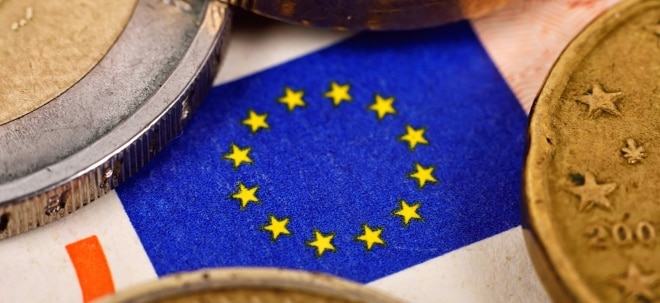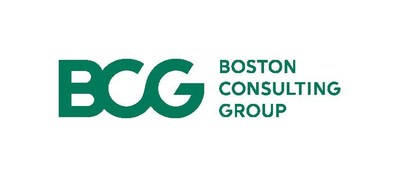European Shoppers Hunt for Bargains Amid Rising Economic and Political Pessimism
- BCG's Survey of Over 16,000 European Consumers Finds 54% Are Pessimistic About Their Country's Economy and 52% Worry Daily About Their Personal Finances
- Consumers Cut Back on Discretionary Spending; Expect to Increase Spending on Two Fronts: Essentials and Luxury
- Online Shopping, Sustainability, and Deal-Seeking Reshape Consumer Preferences and Expectations
BOSTON, June 10, 2025 /PRNewswire/ -- European consumers are navigating 2025 with growing unease, reevaluating their spending priorities due to economic, political, and environmental concerns. According to a new report by Boston Consulting Group (BCG), more than half (54%) of surveyed European consumers are pessimistic about the economy in their home country—a 7 point increase since July 2024. Meanwhile, 52% worry daily about their personal finances—a 9 point increase from last year.
These findings are part of BCG's latest European Consumer Sentiment Report, titled European Consumers Brace for More Uncertainty, based on an April survey of over 16,000 consumers across nine countries. The study reveals a widespread shift toward financial caution and value-driven spending.
In addition to economic unease, political anxieties run high, with 57% of Europeans expressing pessimism. But anxiety isn't felt equally: over 73% of consumers in France, 71% in Romania, and 70% in Spain feel pessimistic, compared with just 38% in Scandinavia. The impact of tariffs remains a lesser concern, cited by only 30% of consumers—lower than the 42% of consumers concerned about sustainability and climate change.
"Across Europe, consumers are becoming more selective and deal-driven," said Andreas Malby, leader of BCG's Consumer practice in Europe, the Middle East, Africa, and South America, and a coauthor of the report. "With consumers scrutinizing every purchase, brands are now competing on trust, ethics, and value for money."
The Hunt for Deals Intensifies
Good value for money is the most important purchasing factor in all nine countries surveyed; cited by 59% of consumers. The ability to save and low prices ranked second and third; cited by 48% and 47% of shoppers, respectively.
Consumers are cutting back on discretionary items such as apparel (-22% net spending), alcohol (-18%), and snacks (-15%). Spending on household essentials, however, has risen, driven largely by inflation rather than volume.
Luxury fashion is bucking the downward trend. High-income consumers and luxury buyers plan to increase spending in this category in the next six months.
What Consumers Are Looking For
As consumers weather economic uncertainty, they're adjusting their spending priorities and expectations:
- Physical Stores Aren't Disappearing Just Yet. Compared with 2024, consumers report a modest drop in online shopping as they curb spending on discretionary items. Nearly three-quarters (72%) of consumers deem physical stores essential, indicating a preference toward integrated shopping experiences across channels.
- Two-day Delivery Is Becoming the Expectation. For categories such as groceries and alcohol, 83% and 71% of consumers expect two-day delivery respectively. Scandinavian consumers, however, are more likely to have lower expectations for delivery speed compared with other European markets.
- Amid Sustainability Concerns, Consumers Buy Second Hand. Nearly half (45%) consider sustainability when shopping (up 5 percentage points), but only 17% are willing to pay a premium. More consumers are turning to secondhand shopping in response to sustainability concerns. Approximately 20% of European consumers regularly buy apparel, toys, luxury fashion, and furniture second hand. Rates are notably higher in Scandinavia (25% to 35%) than in Spain and Italy (10% to 15%).
- Before Buying, Consumers Weigh Ethical Implications. More than one-third of consumers say they boycott brands for ethical or political reasons, up 6 percentage points from last year. This shift signals that brands must appeal not only to consumers' wallets, but to their values.
"This is a defining moment for consumer companies," Malby said. "Brands should make bold portfolio and pricing decisions while planting seeds for the future. Although the current climate is challenging, growth will return—companies should manage for both today and a brighter tomorrow."
Download the publication here:
https://www.bcg.com/publications/2025/europeans-brace-for-more-uncertainty
Country-level insights are available for Denmark, France, Germany, Italy, Norway, Romania, Spain, Sweden, and the UK.
Media Contact:
Eric Gregoire
+1 617 850 3783
gregoire.eric@bcg.com
About Boston Consulting Group
Boston Consulting Group partners with leaders in business and society to tackle their most important challenges and capture their greatest opportunities. BCG was the pioneer in business strategy when it was founded in 1963. Today, we work closely with clients to embrace a transformational approach aimed at benefiting all stakeholders—empowering organizations to grow, build sustainable competitive advantage, and drive positive societal impact.
Our diverse, global teams bring deep industry and functional expertise and a range of perspectives that question the status quo and spark change. BCG delivers solutions through leading-edge management consulting, technology and design, and corporate and digital ventures. We work in a uniquely collaborative model across the firm and throughout all levels of the client organization, fueled by the goal of helping our clients thrive and enabling them to make the world a better place.
![]() View original content to download multimedia:https://www.prnewswire.com/news-releases/european-shoppers-hunt-for-bargains-amid-rising-economic-and-political-pessimism-302477049.html
View original content to download multimedia:https://www.prnewswire.com/news-releases/european-shoppers-hunt-for-bargains-amid-rising-economic-and-political-pessimism-302477049.html
SOURCE Boston Consulting Group (BCG)



